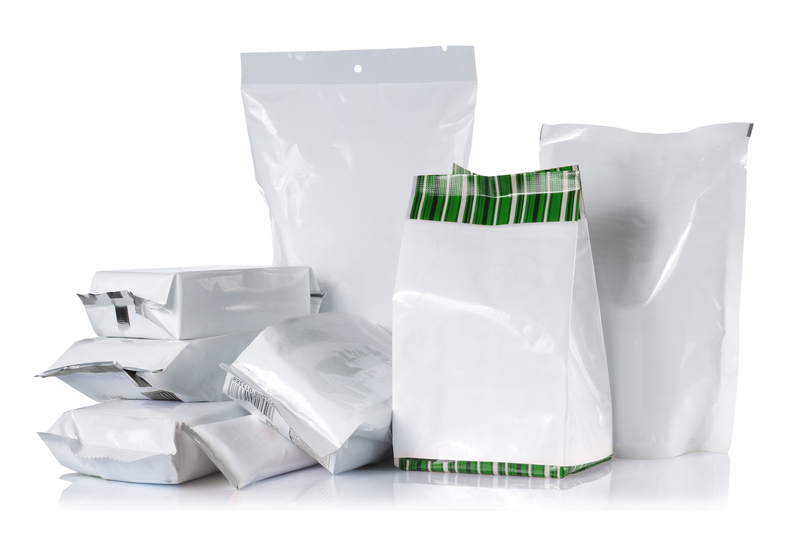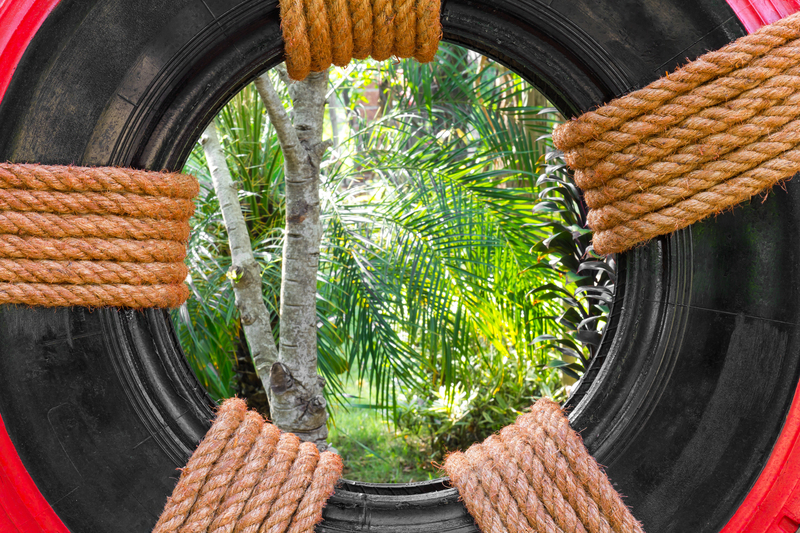Effortless Disposal Solutions for Plant Pots: Eco-Friendly and Practical Ideas
Do you have a collection of empty plant pots piling up in your garden shed or balcony? You're not alone. Many gardening enthusiasts and plant lovers often struggle with what to do with unwanted pots. Plastic and clay pots can accumulate fast, especially as you repot, upgrade containers, or if your beloved leafy friends don't survive. Effortless disposal solutions for plant pots are not just convenient--they're essential for minimizing waste and helping the environment too.
Why Responsible Plant Pot Disposal Matters
The average gardener goes through dozens of plant containers every year. Indiscriminately throwing them away is not only wasteful but can also harm our planet. Most standard black plastic pots aren't accepted by curbside recycling programs, and even terracotta or ceramic pots may pose disposal challenges. Here's why you should take a mindful approach to disposal:
- Reduces landfill waste
- Puts unwanted pots to new uses
- Encourages community sharing or charitable giving
- Supports sustainable gardening practices

Types of Plant Pots: Know What You Have
Before choosing the best disposal method for plant containers, you need to identify the material:
- Plastic Pots: Often made from polypropylene or polyethylene. Not all are recyclable, especially the black or dark-colored ones.
- Clay & Terracotta Pots: Biodegradable but take centuries to decompose naturally. Break easily but are heavy for landfill.
- Ceramic Pots: Glazed with colorful finishes. Not widely recyclable due to glazes and coatings.
- Biodegradable Pots: Made from coconut coir, peat, rice hulls, or even paper. Can often go straight into compost or plant beds.
- Metal & Fiberglass: Durable but difficult to recycle due to mixed materials.
Effortless Recycling Solutions for Plastic Plant Pots
Recycling plant pots made of plastic isn't as simple as tossing them in your blue bin. Most municipal recycling programs do not accept garden plastics by default. Here's how to ensure hassle-free recycling:
- Check Local Recycling Guidelines: Some cities offer special plastic pot recycling days or drop-off locations, especially in spring and fall.
- Garden Centers Pot Take-Back Programs: Many home improvement and garden stores run annual or permanent pot recycling drives. Ask at your local nursery or check their website.
- Clean Before Dropping Off: Empty, rinse, and dry pots to make them acceptable for sorting and recycling.
- No Labels or Metal Parts: Remove stickers, clips, or attached labels to streamline the recycling process.
Variations of effortless disposal solutions for plant pots: Look for "garden pot recycling," "plastic plant pot collection," or "nursery pot take-back" in your area for effortless ways to keep plastic out of landfill.
Creative Ways to Reuse or Upcycle Plant Pots
If tossing pots seems wasteful, you're right. Reusing and upcycling are two key components of sustainable plant container disposal solutions. Here are smart ways to give old pots new life:
Repurpose for Your Home and Garden
- Storage Solutions: Use small pots for organizing tools, paintbrushes, or kitchen utensils.
- Craft Projects: Paint and decorate pots for unique gift containers, lanterns, or even bird feeders.
- Seed-Starting and Propagation: Reuse old containers for seedling trays or rooting cuttings.
- Outdoor Projects: Fill with sand or gravel for weights to hold down tarps or nets.
Upcycling is not only eco-friendly but lets you add a personal touch to your garden decor while keeping pots out of landfill.
Contribute to Community and Charitable Efforts
- Share With Neighbors or Clubs: Place a "free pots" post on community boards or social media gardening groups.
- Donate to Schools or Community Gardens: Many educational programs need inexpensive pots for teaching gardening skills.
- Offer to Local Nurseries or Libraries: Some businesses or public spaces accept clean used pots to help their visitors or volunteers.
Effortless Disposal Methods for Terracotta and Ceramic Pots
Terracotta and ceramic pots often break, chip, or become outdated in style. Here's how to dispose of them with minimal effort:
Reuse in the Garden
- Potted Shards for Drainage: Break up old pots and place pieces at the bottom of new containers to improve soil drainage.
- Pathways and Mulch: Crushed terracotta can be used as decorative mulch or to construct garden paths.
- Garden Markers: Write plant names on small broken sections with permanent marker for practical and rustic labels.
Safe Disposal
- Check Non-Curbside Recycling: Some recycling centers handle inert ceramics in dedicated bins or during special events.
- Waste Transfer Stations: Confirm with your local waste management provider about how to deposit ceramic or clay fragments.
Avoid putting ceramic or terracotta pots in your regular recycling as they can contaminate glass and plastics during processing.
Composting and Disposal for Biodegradable Plant Containers
Eco-friendly plant pot disposal is easiest if you choose containers made from biodegradable materials. Here's how to handle them:
- Direct Composting: Most fiber pots, coconut coir, and paper-based containers break down fully in compost piles.
- Planting Directly: Some biodegradable pots are designed to be planted right in the soil, where roots grow through them as they decompose.
Check product labels to ensure the container is truly compostable and contains no toxic glues or coatings.
Partner with Local Recycling and Garden Centers
Streamlined plant pot disposal solutions often involve businesses in your community-- garden centers, recycling hubs, or municipal waste facilities. Here's why and how to take advantage:
- Special Collection Events: Many areas run plant pot drives in spring and autumn. Mark these on your calendar.
- Permanent Drop-Off Locations: Some nurseries offer bins for year-round pot collection, often located near their entrance.
- Ask for Information: Nursery staff and local recycling websites keep updated lists of accepted materials.
Tips for Making Disposal Easy and Efficient
- Sort by Material: Group pots by type to save time at drop-off locations.
- Clean and Stack: Rinse out dirt and stack pots to conserve space.
- Remove Extras: Strip off labels or wires from plastic pots as required by recycling programs.
Why Not to Burn or Bury Plant Pots
Burning old plastic pots is never safe. Toxic fumes endanger your health and pollute the air. Similarly, burying plastic or ceramic pots does not break them down--they can persist for centuries.
If you want effortless and ethical plant pot disposal, always opt for reuse, recycling, or community sharing first.
Frequently Asked Questions (FAQ) About Effortless Plant Pot Disposal
-
Can I recycle black plastic plant pots?
Most curbside recycling does not accept black plastic because recycling machines cannot read it. However, select horticultural retailers accept black pots for special recycling streams. -
Are biodegradable pots always compostable at home?
No. Some may need industrial composting. Look for certification or attempt a small home compost test. -
Where can I donate unwanted plant containers?
Check community gardens, schools, local nurseries, or swap groups for donation opportunities. -
Can I put terracotta pots in the municipal green bin?
No. Terracotta is inert and should be reused in the garden or taken to specialized waste facilities.

How to Reduce Plant Pot Waste in Future
The most effortless disposal solution for plant pots is to prevent excess accumulation in the first place. Here's how to minimize waste:
- Buy Bulk or Bare-Root: Purchase plants in bulk or as bare-root specimens, which often come with minimal or no packaging.
- Invest in Durable Pots: Use long-lasting containers that can be sterilized and reused year after year.
- Choose Compostable Pots: Opt for coconut fiber, peat, or paper-based options for new plantings.
- Join a Pot Exchange: Participate in local or online pot swaps to share and reuse containers within your community.
Conclusion: Eco-Friendly, Easy Plant Pot Disposal is Within Reach
From recycling with garden centers, repurposing at home, to donating pots for new uses, there are many effortless disposal solutions for plant pots available to every gardener. By staying informed and choosing the right option for each type of plant container, you'll keep your space tidy and contribute to a greener earth. Remember, sustainable plant pot disposal starts with small but impactful steps. Let's inspire our gardening communities to treat plant pots not as waste, but as valuable resources for ongoing reuse, creativity, and connection.
Looking for more tips? Bookmark this guide, and share these practical solutions with your fellow plant lovers for a fresher, cleaner, greener world.